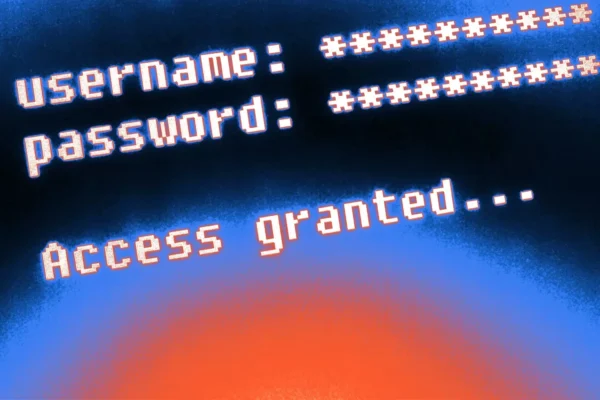
IRS Scams and How to Spot Them

While nobody wants to be audited by the Internal Revenue Service, there is a far worse fate awaiting the taxpayer: getting scammed by someone posing as a tax agent. While you may think this would never happen to you, tax scams are far from uncommon, and scammers are becoming increasingly sophisticated with their tactics.
The best way to avoid falling victim to tax scams is to know and recognize the telltale signs of a fraudulent scheme. We’re here to break down how some of the most common IRS scams work so that you know what to be on the lookout for.
How IRS Scams Work
Not all scams are the same. In fact, con artists may use one of several methods to get in touch with you.
Phone IRS Scam
The phone scam is among the most common tax scams.
How it starts: This scam starts with a phone call— which is the very first red flag of many because the IRS typically conducts initial contact via the U.S. Mail. The call is a recording that states that this is your “final warning” and that the Internal Revenue Service is about to bring a lawsuit against you for failing to pay your back taxes. A phone number is left for you to call so that you can sort out this tax problem.
The number that you will be asked to call will have an American area code. They do this by using software that blocks your ability to properly identify the true origin of incoming calls. For their own protection, they change these numbers constantly; if you wait a day to call a number they left on the recording, chances are it will no longer work.
In some cases (not all calls follow the exact same script), the alleged agent will ask for your name and Social Security number and then ask you to wait while they get your case file. They might give you your case number and their “IRS badge number” just to ramp up the realism.
How they scam you: At this point, a number of things can happen. They can say that you are being accused of tax fraud, or they might tell you that they have reviewed your returns for a five-year period and that you are in arrears. The amount varies, but it is usually no less than $5,000 that you owe.
In many scam cases, no matter how you are contacted, the “agent” will stress the urgency of your situation, often suggesting that your arrest is imminent. Because of this, they will tell you that you need to pay immediately. PayPal is frequently used, but there are methods as well, including pre-paid cards, Western Union, money orders, and wires.
They will not accept a mailed check, another sure sign that this is a scam because— as anyone who’s ever paid a tax bill knows— the IRS has always been willing to take personal checks. If you ask to pay online via the IRS website, they will also tell you this option is not available because of the time factor in your case.
They don’t always ask for a check. They might also just want to use your Social Security number (which you just provided to them) to open accounts, get access to your other bank accounts, and more.
Not all calls follow the same script. They can be more personalized, depending on what type of personal information they are trying to get from you. The tax fraudsters can also be very persistent, calling multiple times— another tactic an IRS agent would never use.
IRS Email Scam
How it starts: Scammers may also try to get in touch with you via email. You might receive an email from an official-appearing email address. They may even use the official IRS logo and direct you to a similar-looking website.
How they scam you: Email scams can have a number of objectives. Some of the most common ones include:
- Getting you to send money: Like phone scams, they may say that you owe money to the IRS and direct you to pay your fines and overdue tax bill in manners similar to what we discussed above.
- Getting you to reveal sensitive personal information: The phony IRS agent may write that you are due a tax refund and, in order for you to receive your money, you must provide personal information such as your Social Security number or financial information such as bank account and routing numbers. This can lead to identity theft.
- Infecting your computer with malicious software: Some spam emails contain malware that can potentially give scammers access to your computer and all of the information on it.
Just remember that the IRS will never use email to get in touch with a taxpayer, nor do they discuss tax account information with taxpayers via email or use email to solicit sensitive financial or personal information. The IRS advises to never send personal information to us via email unless it is through a secure IRS online application via IRS.gov.
Use your best judgment, and if you aren’t sure about the legitimacy of an email, do not open any attachments or links.
IRS Mail Scam
Though less common than phone and email scams, there has also been a rise in mail scams.
How it starts: Many people have caught on to the fact that the IRS won’t contact you via phone or email, so scammers have turned to the method that they do often use— mail.
A fraudulent letter may claim that you are delinquent on your taxes or that an IRS lien is imminent. These letters may claim to be from the “Bureau of Tax Enforcement”, which doesn’t exist.
Like the phone calls and emails, these letters may have threats of arrest or legal action.
How they scam you: These letters will encourage you to take action by contacting the “Bureau of Tax Enforcement” or the IRS at a phony number or email address. From there, scammers will turn to the phone or email scam tactics that we talked about above.
Keep in mind that a real IRS letter will typically have the following:
- A government envelope or a seal on the letter or notice
- A portion of your tax ID number
- Legitimate IRS contact info
- Information about your rights as a taxpayer
Additionally, a legit letter that says you owe money will list your payment options that might include online payment through irs.gov or writing a check to the Treasury. If a letter insists on only accepting payment in a form that can easily be cashed out, such as gift cards or wire transfer, it is bogus.
The Bottom Line
Although the scammers have been working this con for a number of years, there are still those who get taken in by it. The “agents” often resort to bullying (“Do you want me to send the police to your house?” is a typical threat), which can be an effective tool against someone who is not on their guard. The elderly are especially at risk, as are immigrants who are not entirely familiar with how tax collection works in the United States. Do your elderly relatives and friends a favor and warn them about this and other telephone-related scams so that they know what to expect.
If you get one of the calls, emails, or letters, ignore it. Do not call them back. There is nothing to be gained on your end by interacting with them, even if you’ve already identified them as a scammer.
As always, if you are truly concerned that you might have a legitimate tax problem, visit irs.gov or call the Internal Revenue Service directly at 800-829-1040. Remember: always check the links you click on, and make sure the phone number is correct before giving any personal information.
Looking for a new credit union?
Become a member today, and enjoy Fee-Free Banking with Amplify.


